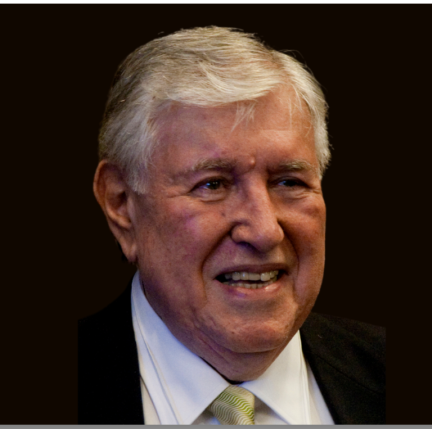
Barry Sussman, the Washington Post editor who directed coverage of the Watergate scandal in the early 1970s, died on June 1, 2022, at his home in Rockville, Maryland. He was 87.
Sussman oversaw the work of Post reporters Bob Woodward and Carl Bernstein that ultimately resulted in the political fallout that led to the resignation of President Richard Nixon in 1974. The Post’s coverage received the 1973 Pulitzer Prize for public service. It was also dramatized in “All the President’s Men,” the 1976 movie based on Woodward and Bernstein’s book of the same name, but the film — and popular culture — overlooked Sussman’s important contributions to the Watergate investigation.
From 2003-2012, he served as editor of the Nieman Watchdog Project, created to promote watchdog journalism in the United States and abroad and to encourage reporters and editors to monitor and hold accountable those who exert power in all aspects of public life. The project was funded by a gift from Murrey Marder, a retired chief diplomatic correspondent for The Washington Post and a 1950 Nieman Fellow. Its guiding tagline was “Questions the press should ask.”
Sussman’s former Nieman Watchdog colleague Dan Froomkin, now the editor of Press Watch, reflected on the impact of Sussman’s work saying: “He was a giant of journalism, one of the all-time great editors, the unsung hero of the Washington Post’s Watergate coverage. And unlike so many others, he never lost his passion for holding the powerful accountable. … He was always wise, and often prescient.”
In 2012, the Nieman Watchdog website ended publication and the Watchdog Project took a new direction. Today, articles about watchdog journalism appear occasionally in Nieman Reports.
Sussman was a Washington Post editor for 22 years, holding the positions of city editor, special Watergate editor, special projects editor/national, Washington Post pollster and public opinion analyst and columnist for the Post’s National Weekly edition. In 1981, he co-founded the Washington Post/ABC News poll, which he managed for the next six years.
After leaving the Post in 1987, Sussman served briefly as the managing editor of national news for United Press International. He additionally worked as an international news media consultant with assignments at newspapers in Spain, Portugal and in seven Latin American countries. He was a board member of the Innovation International Media Consulting Group.
He was the author of three books. The first, “The Great Coverup: Nixon and the Scandal of Watergate” (Thomas Y. Crowell Company, 1974), was named one of the best books of the year by The New York Times. His other books are “What Americans Really Think” (Pantheon, 1988), which covered public opinion and politics, and “Maverick: A Life in Politics” (Little, Brown and Company, 1995), which was co-written with Lowell P. Weicker, Jr., former U.S. senator and governor of Connecticut.
Sussman was born in Brooklyn, New York, on July 10, 1934. In 1956, he graduated with a bachelor’s degree in English and history from Brooklyn College, where he worked as an editor and columnist on a school newspaper. After working at a New York advertising agency and moonlighting as a movie reviewer, he joined the Bristol Herald Courier in Bristol, Virginia, and worked his way up to become managing editor before moving to the Post in 1965.
He is survived by his wife Peggy (Earhart) Sussman, two daughters, Seena Sussman Gudelsky and Shari Sussman Golob, and four grandchildren.
Related Reading from Nieman Lab
All the newsroom’s men: How one-third of “The Watergate Three” got written out of journalism history
By Joshua Benton

